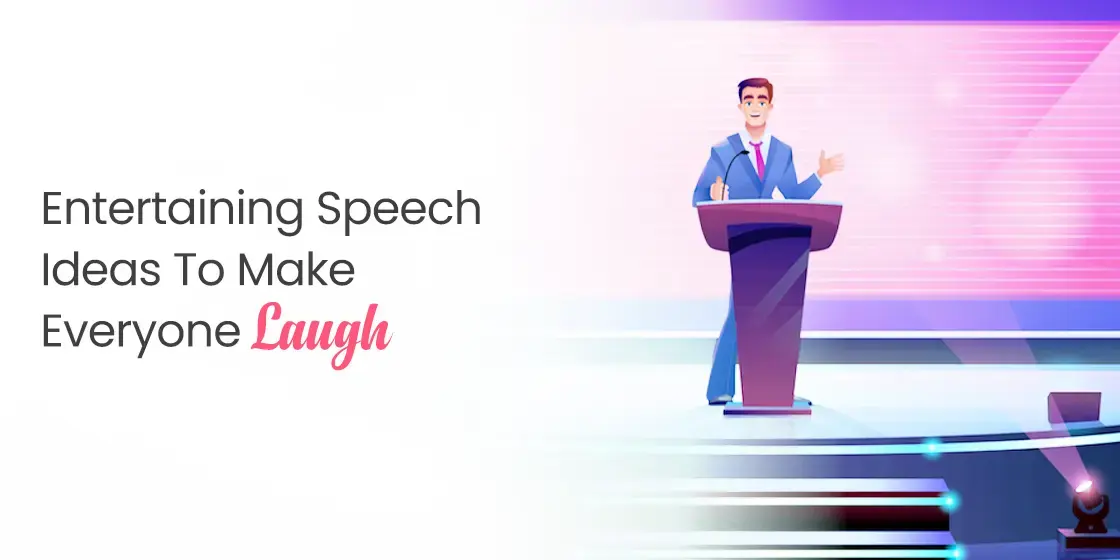A two-minute guide to write a perfect speech
Perfection is illusion, but when it comes to writing or delivering a speech, you can hit the ball close to perfection, but how?
Well, a speech becomes perfect if it stunts the audience, making them think, though for a moment, about the subject being spoken about; sometimes, a well written, calmly composed, and fiercely delivered speech change someone’s entire life.
This is the power of words, only if delivered in the right way at the right point in time; it means a speech should be written and delivered as per the audience absorptive capacity. If you’re thinking that only speech-delivery matters, then you’re living in a fool’s paradise, as writing a speech is equally crucial; I guess writing is more challenging than delivering, it’s a base where the quality is being produced.
So, whether you want to turn your national-day boring speech into an exciting piece or want to win the speech competition, here are a couple of factors that you should consider.
Make sure your chosen topic is interesting and inspiring, having engagingly powerful sentences, audience-centric tone, exciting vocabulary, and follows a precise length; don’t forget, the wordier the speech is, more boredom it brings.
Well, here are tips, tricks, and examples of how professional speech writers write perfect, I mean close to perfect, speeches.
Topic Selection
Often, we are provided a niche or a general idea about what to write, now here come the first yet most-important job of a speech-writer – deciding the topic of a speech, considering what audience might make sense out of with.
First thing first – streamline a specific concern out of a vast array of general ideas; want a pro tip? Keep yourself in the audience’s shoes, guessing what they want to hear, and then merge your ideas with that. This is how you will find that sweet-spot where your ideas cross your audience’s interests.
Let’s say you want to write a speech on poverty; which is a vast topic, and affects different people differently; so, if the audience have more philanthropists and wealthy individuals, then your speech should be more about how have-ones can lessen the gaps between rich and poor. However, if you want to deliver a speech on poverty to a group of flood victims, your speech should be a lot more motivational and inspirational, aiming at how to outgrow poverty, and how to come out of the vicious cycle of poverty.
Last, not least, no matter what genre is being provided to you, make sure your topic should be direct, relevant, powerful, and sounds appealing; a topic is the interest-making or braking point of a speech, so no vague or hi-fi jargons in the topic.
Impact-fullness
If the topic of a speech is strong, but lacks impactful supportive arguments, then it’s more like you are deceiving your audience; would you listen to someone making you fool?
Obviously not!
Have you ever noticed, how a speaker emphasizes on some statements, while delivering the rest in a normal tone?
This is the magic of having impactful lines in a speech, and for this matter, you should know exactly what to communicate to your listeners. Now, these impactful statements could be quotes, facts, figures, argument-supporting examples, or anything that create an impression or trigger emotional stimulus among listeners.
The best practice to use them, or we should hide them, after every few lines, instilling a new life as soon as the content sounds dull or boring – it’s like giving audience more and more reasons to listen your speech till the end.
Like if you use “The world is dying, and we are just casual spectators,” and swarm facts and figures in a speech about global warming, then your speech would become more direct and sounds more authoritative. Keeping aside the facts, this line makes the audience, not just listen, but to get involved in the subject.
If written and delivered correctly, a powerful line is enough to change one’s mood, making the person feel for something that you are trying to highlight.
Crisp and Clear Vocabulary
Speech is about speaking, where ate-eight, maid-made, arc-ark… sound similar, until you don’t listen the statement correctly, you will never get to know which word is being used; so, how to solve the mystery of expressing the right vocabulary?
It’s simple, use as crisp, clear, self-explanatory, and easy-to-understand words as possible, your speech is not your English exam where vocabulary matters. Here, clarity and connection are the main focus, mispronunciation of any jargon or difficult word could turn audience experience upside down, so, no fancy but understandable and powerful words.
Like, using the word flabbergasted is not appropriate, you can use astonished, amazed, or astounded; striking the right balance between vocabulary and delivery is the key whilst attempting to get the audience by your side.
There’s NO ideal length
How long a speech should be, is entirely up to the topic, given time, and speaker’s speed; so be calculated. The ideal word-to-time ratio is 180 words per minute, if you can read 3 words per second.
The ideal length of a speech is a topic that is often debated amongst professional speech writers. Some say – the longer, the better, as it gives more space to add facts and figures, while others prefer to keep the speech shorter, insightful, and engaging.
A speech that lasts for around 3.5-4 minutes is often considered ideal whilst considering most general niche’s that speeches often entail; no matter how pressing the topic is, make sure it doesn’t last more than 4 minutes. A much longer speech considered dull and often failed to grasp attention of listeners; generally, it’s difficult to keep the audience hooked for a longer duration.
Even the shorter speeches are also not considered worth listening, a speech shorter than the prescribed time considered incomplete and possibly reflect that the writer and the speaker just wanted to get the speech off their shoulders.
You must be thinking…
Why speeches need to be written and delivered perfectly?
A well-resonating speech can bring a change in the whole nation, if the right audience is sitting on the other end; sadly, this media-centric world has lost the real charm of speeches and its due importance. Today, we feel reluctant and uncomfortable to share our ideologies, thought-processes, especially the ones that revolve around taboos and cultural shocks on public platforms.
And, this is how the communication gap between humans is getting bigger than ever!
Speech writing services and professionals alike will agree on the fact that the power of a well written speech can establish the rightful impact in the society as a whole. So, when you start writing a speech, make sure your words will frame your identity among your audience, all the other things like the presentation, the stage, and the atmosphere are secondary.
So, be careful!
Are you ready to be in THEIR shoes?
A technique that often does wonders for professional speech writers is to be in the shoes of the audience – what would you like to know while attending an event regarding the global warming?
Ask this question first and once you got the answer, then only start writing your speech about the stated topic, or else let your audience yawning throughout your crap, sorry I can’t call it a speech.
Repeat after me – my speech should reflect me; it should have everything that is within me.
Good, now, it will be easier for you to write an ideal speech.
I hope this mini-walkthrough help you to master your speech writing skill; if you still need help, hire our expert speech writer now. Have something else in mind or want to share your speech experience with us? Write us an email or use the comment section below.


